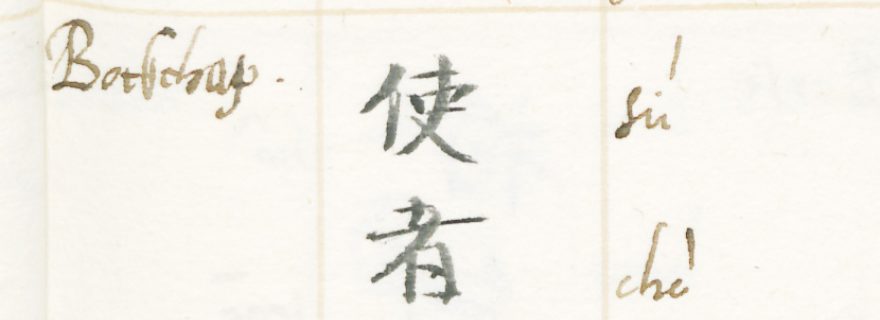A Dutch-Chinese dictionary in manuscript from Batavia
On an early dictionary with contemporary Mandarin pronunciation.
When the protestant minister Justus Heurnius (1587-1651/2) arrived in Batavia in 1624, he immediately noticed how important the Chinese community was there, and he reported this to the Board of the Dutch East India Company. During the following years, with the assistance of a Chinese schoolteacher who had learned Latin in Macao, he compiled a small Dutch-Latin-Chinese dictionary. This dictionary shows, in three vertical columns, the Dutch word with Latin translation, the translation in Chinese characters, and the contemporary Mandarin pronunciation.
In 1629 Heurnius sent three copies of the dictionary to Leiden. He hoped that later scholars would profit from it as soon as China was opened for trade. Two copies were intended for Leiden University and ended up in the hands of the Arabist and mathematician Jacobus Golius; after his death all his books were auctioned, and these copies are now in the British Library in London and the Bodleian Library in Oxford. The third copy remained in the Netherlands and is shown here (Acad. 224). It is shorter because the Latin text is omitted. Heurnius had sent this copy as a present to his brother Otto, who was professor of medicine in Leiden, just like their father.
Heurnius must have communicated in Latin (or perhaps also in Portuguese) with the Macao schoolteacher, and he clearly knew little Chinese. Owing to the double translation (Dutch-Latin-Chinese) some strange mistakes occur in the dictionary. For instance, “boeck” (book) is translated as “to decide for oneself, to have no master,” because the Latin word for “book,” liber, can also mean “free.”
Post by Koos Kuiper, former curator of Leiden University Libraries.


